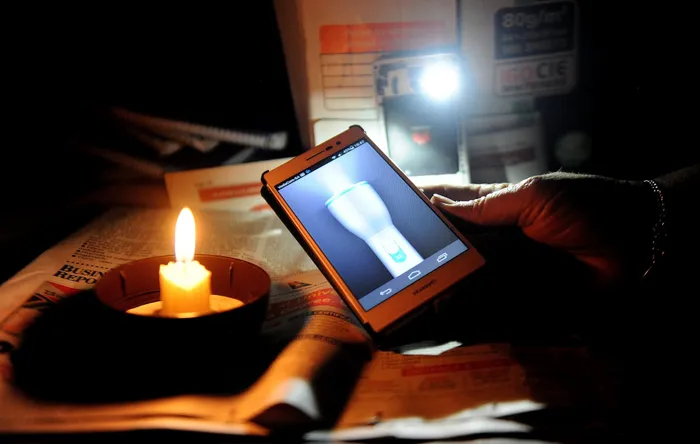Eskom’s winter 2025 plan: Stable grid, fewer outages, and no stage 5 blackouts in sight

Eskom has pledged to keep the country warn this winter, warned that should demand increase, Stage 1 and 2 rolling blackouts may still be implemented.
Image: Itumeleng English / Independent Newspapers
Power utility Eskom has vowed to keep the country warm this winter, saying the national electricity grid is stable, maintenance is progressing, and emergency reserves are in place.
However, should demand increase, Stage 1 and 2 rolling blackouts may still be implemented.
“For winter 2025, loadshedding is not expected if unplanned outages remain below 13GW. If outages increase to 15GW, loadshedding would be limited to a maximum of 21 days out of 153 days at Stage 2, an improvement over the prior winter's worst-case prediction of Stage 5 loadshedding,” said Eskom Group Chief Executive Dan Marokane during a media briefing on Monday.
Marokane said the improved winter outlook is due to a 3.1GW decrease in unplanned outages compared to the previous year.
“As a result, the forecast range has been lowered to 13–15GW, down from 14–17GW in winter 2024,” he said.
“Last winter had no loadshedding, with average unplanned outages at 12.3GW, significantly below the winter 2024 base-case projection of 14GW.”
Marokane said this year’s winter outlook is based on an improvement in operational performance and overall efficiency.
“Loadshedding was lower in Eskom's last financial year (FY 2025) than in the previous two years. In FY 2025 we delivered power 96% of the time, in the previous year the figure was just 9.9%,” he said.
“Our diesel open-cycle gas turbines were utilised approximately 50% less in FY 2025 compared to the two previous financial years, saving around R16 billion,” Marokane added.
“Against this progress, we have seen some setbacks in operational excellence, as evidenced by the recent loadshedding requirements between January to April 2025,” he added.
“A targeted plan has been put in place to reinforce operational discipline and accelerate recovery initiatives to address the root causes related to the recent loadshedding events.”
Marokane said the winter outlook is based on a number of key performance indicators, including a 3.1GW year-on-year decrease in unplanned outages, which has enhanced available generation capacity.
Between May 2023 (18GW) and April 2025 (13.5GW), there was a significant 4.5GW reduction, reflecting improved plant performance.
He said the summer average of 12.5GW in unplanned outages was better than the forecasted base case of 13GW, despite some units being reclassified from planned to unplanned outages due to overruns in scheduled maintenance.
“Planned maintenance for FY 2025 reached 12.8%, up from 12% in the previous year, marking a 0.8% increase. Between September and March, maintenance activity averaged 14.5%, compared to 14.07% during the same period the previous year and 11.8% in FY 2023, an increase of 2.7% compared to FY 2023.”
“This forward-looking approach contributes to enhanced winter preparedness and ensures compliance with environmental and regulatory requirements.”
He said plant availability improved to 61% in FY 2024 and 2025, up from 54.6% the previous year, an approximately 6.5% year-on-year improvement.
Eskom projects a notable increase in the Energy Availability Factor (EAF) as it completes the outstanding actions in its recovery plan.
“Diesel consumption dropped by approximately 50%, resulting in cost savings of approximately R16.51 billion year-on-year, reflecting a reduced reliance on emergency generation.”
Marokane added: “Sales volumes grew by approximately 3.6% year-on-year, driven by improved generation capacity, higher exports and reduced reliance on diesel”.
He confirmed that Kusile Units 2 and 3 have been successfully reconnected to the main stacks and are now operating with the flue gas desulphurisation (FGD) system.
"Unit 1 is currently undergoing a scheduled outage and is expected to return to service in June, also connected to the main stack. This follows authorisation from the Department of Forestry, Fisheries and the Environment (DFFE), which had previously permitted the temporary operation of the three units without the FGD system, under strict environmental conditions, until March 31, 2025, following the 2022 structural failure of the west stack.”
He said a total of 3.470GW wind capacity was made available through curtailment in the Eastern and Western Cape.
“In line with our goal to modernise the power system, Eskom has installed 880,000 smart meters to date.”
Among other benefits, this technology supports effective demand control through load limiting and enables eligible customers to return surplus clean energy to the grid, helping to reduce strain on the system during peak times.
“Continued investment in building 2,500MW capacity and securing future energy supply through key milestones, Koeberg Unit 2 successfully returned more than 900MW to service in December 2024 following the completion of the Long-Term Operation project,” Marokane said.
He said Kusile Unit 6 was synchronised to the grid on March 23, 2025, contributing 800MW and is scheduled to be in commercial operation by September 2025.
"Medupi Unit 4 returned online, progressing well and anticipated to return 800MW to service by the end of May 2025.”
Meanwhile, Bheki Numalo, Eskom Group Executive for Generation, said the power utility produced more energy in FY 2025 than in the previous two years.
“We continue to make bold decisions with the future in mind, to build a stronger, more reliable power system for the country,” Nxumalo said.
“We have continued to maintain high levels of planned maintenance as part of efforts to improve fleet reliability in preparation for the high winter demand, while also meeting environmental license conditions and regulatory requirements,” he said.
“We have evolved our Generation Recovery Plan to ensure our data-led analysis of the delays in returning units from outages on time, which has caused our fleet to be constrained and unable to accommodate a sudden loss of units, receives intense management focus as we use our high challenge, high support culture to assist our teams in rectifying this situation,” added Nxumalo.
simon.majadibodu@iol.co.za
IOL News